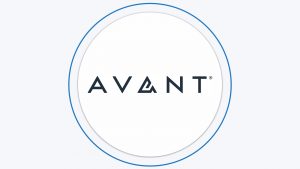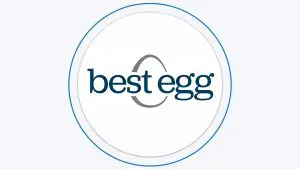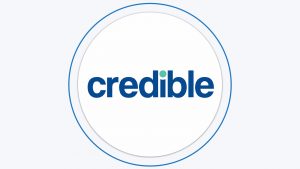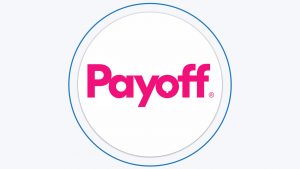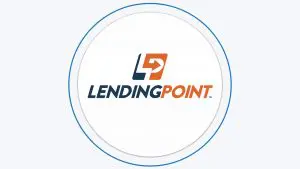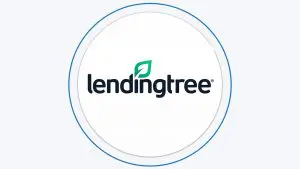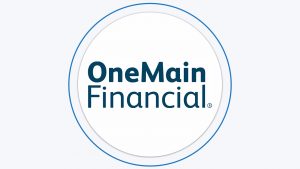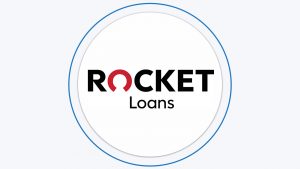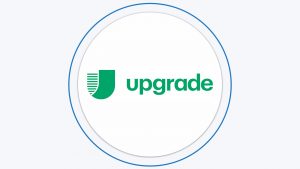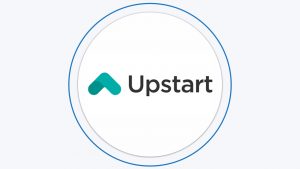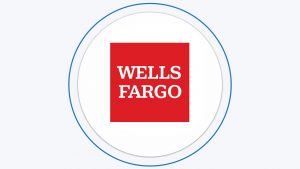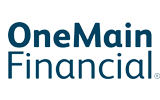Table Of Content
Typically, personal loans range from $1,000 to $100,000.
Personal loans can be a great option for funding various projects, whether it's paying medical expenses or repairing your home’s solar panels. If you're planning a big purchase or looking to consolidate debt, you might be wondering how much you can borrow.
The loan amount you qualify for depends on several factors, including your credit score, employment history, income, and the type of loan you're applying for.
What Is The Maximum I Can Get?
Personal loan amounts range from $1,000 to $100,000.
The maximum amount of personal loan you can get is $100,000. However, most lenders limit the amount to less than $100,000. Most lenders give loans amounting to up to $50,000.
Your debt obligations and income affect the maximum amount you can borrow. Although some lenders offer large loans, you may get approval for lower amounts based on your income level and credit score, among other factors.
When you borrow large amounts of money, it gives you a wide variety of options for its use. However, it also implies that your debt-to-income ratio will increase, which can adversely affect your credit score.
Large personal loans are often secured and used for major purchases, such as buying a home or car. Secured personal loans are less risky, and you can get them at lower interest rates.
What Do You Need to Get a Large Personal Loan?
Before applying for a large personal loan, it’s important to make sure you meet the qualifications. Lenders need to confirm that your credit and financial situation show you’re capable of repaying the loan along with any other existing debts.
Here are the key factors you need to consider to qualify for a large personal loan.
-
High Credit Score
Your credit score shows how well you repay your debts. Every time you repay your loan, borrow money or make late repayments, it goes into your credit report.
You can qualify and get a personal loan of a large amount if you have a high credit score. This is because a high credit score shows that you are good at repaying your loans and have a low credit utilization ratio.
Moreover, a high credit score indicates that you have the right credit mix and are cautious about borrowing money.
Therefore, you need a score of at least 720 to qualify for a large personal loan of $100,000.
In this chart compiled with LendingTree customer data, you can see that those with a 720+ credit score pay an average of 7.63%. At the other end of the scale, for those with a poor credit rating of less than 560, the rate shoots up to an eye-watering 113%.
-
Low Debt-To-Income Ratio
Lenders look at your debt-to-income ratio to assess your creditworthiness. The ratio gives an outlook of the financial health lenders use to approve your loan application.
When you have a high debt-to-income ratio, you become a risky borrower, and lenders will be skeptical about lending you large amounts of money.
Essentially, a low debt-to-income ratio of less than 40 percent proves to lenders that you are likely to repay your loan. Therefore, it helps qualify for a large loan, and the lender can charge low-interest rates.
-
Employment History
Your employment history helps in assessing your loan eligibility.
Steady employment improves your loan eligibility and increases the loan amount you can borrow.
If you have been on the job for a longer period, it shows that your position is more secure and you can easily repay your personal loan.
Although a steady employment history does not improve your credit score, lenders use it to give you loans of large amounts.
-
Collateral
You can get a large personal loan if the loan is secured.
You put a valuable asset as collateral, and the financial institution possesses it if you fail to pay back your loan as agreed.
The higher the value of your collateral, the more the loan amount. You can use different assets as collateral, including jewelry, car, retirement, and savings accounts.
-
High Level Of Income
You can get a large loan by increasing your income. You can increase your income by looking for a better-paying job or side hustle.
It might take some time to get more income on the side or show proof of the increase. However, it is worth the effort and wait if you need a large loan for a major project.
Also, an increase in your income level helps lower your debt-to-income ratio making you eligible for loans of larger amounts.

How to Determine How Much Loan I Should Take?
There are different questions to ask yourself to understand the loan amount you need. ‘
Here are the questions you need to ask yourself to determine the amount of loan to borrow and ensure you are prepared for your new loan.
-
How Much Interest Will I Pay?
The interest rate of a personal loan depends on your credit, loan amount, and length. The rate is low when you have a good credit score, and the repayment term is short.
Establishing the amount of interest you will pay before taking a large personal loan is best. If the interest is too costly, you can consider lowering the amount and repaying the loan quickly.
-
Can I Afford the Monthly Repayment?
The monthly installment helps in determining the amount of loan that you need to borrow. When you apply for a loan, you choose the repayment plan that works for your income level and cash flow.
You may choose low monthly installments and pay your loan over several months. Also, you may pay off your loan fast by choosing high monthly installments.
Therefore, you can borrow a given loan after establishing whether you can afford the monthly installment.
-
What Other Choices Do I Have?
You need to evaluate your choices and determine the loan amount you need. Some alternatives allow you to pay no interest on your loan for an extended period.
You can finance large projects using alternatives to personal loans or borrow a small amount and finance the project using the alternatives.
-
How Much Do I Really Need?
The amount you need for the project determines the amount of loan to borrow.
The amount you can borrow ranges from $1,000 to $100,000 and will help you determine whether you really need to borrow from a financial institution.
-
When I Can Repay It?
Knowing the repayment period helps you determine the amount of loan you can take. The length of the loan affects your monthly payment and interest rate.
Is It Smart to Take the Maximum?
A maximum loan amount is a total amount you are authorized to borrow.
The loan amounts are used for different loan accounts, and the maximum amount depends on different factors, including the loan purpose, loan term, and creditworthiness.
Borrowing the maximum loan amount authorized by your lender has pros and cons. Generally, we like to reduce risk and interest on your loan so we prefer taking the lowest amount – as long as it's enough for our goal.
Pros | Cons |
|---|---|
More Capability | Negative Impact On Your Finances |
Security | Reduced Quality Of Life |
Access To More Funds
| Likelihood Of Late Payments |
- More Capability
You can fulfill your financial desires when you take the highest loan amount.
- Security
You get the financial security to fund your projects when you take the maximum loan amount your lender will give.
- Access To More Funds
Taking your maximum loan limit gives you more funds than when you borrow a proportion of your limit.
- Negative Impact On Your Finances
When you borrow the maximum loan limit, you pay more monthly installments. A high installment amount leaves you with little or no money for investment and savings.
- Reduced Quality Of Life
When you pay large amounts in monthly installments, you might be forced not to pay other necessary expenses.
- Likelihood Of Late Payments
Given that the highest loan limits attract large amounts of monthly installments that can be financially straining, you might be unable to make the payments in some cases.
How to Get a Large Personal Loan?
If you are interested in getting a large personal loan, finding a lender willing to lend the money at reasonable rates can be difficult.
As much as most financial institutions offer loans of different amounts, few lend up to $100,000. You can follow the steps below if you need a large personal loan.
1. Check Your Credit Score
It is more difficult to qualify for large personal loans than loans of smaller amounts. To qualify for a loan of $100,000, you should have a high credit score of at least 720.
Therefore, you must check your credit score before applying for a large personal loan. When you check your credit score, you know the loan terms you are likely to qualify for.
If your score is below 720, it is best to take your time to improve your score before applying for a loan.
2. Compare Lenders Terms
When shopping for a large personal loan, research different lenders to determine the lenders offering services that meet your financial needs.
Compare different lenders based on their interest rates, requirements, and fees. A pre-qualification process can help you see a prospective lender's interest rates and terms.
3. Collect Necessary Documents
Before you apply for a large personal loan, gather the required documents. This helps reduce the time you need to prepare your application and ease your creditworthiness.
The common documents that most lenders require are identity documents, income verification documents, and proof of address.
4. Apply
After identifying a lender offering large personal loans at favorable terms, start the formal application process.
You can apply in person or online. The online process is more streamlined, but some lenders may require you to apply in person.
Bottom Line
You can borrow personal loans of up to $100,000 to finance a major project or make a major purchase.
To get a large personal loan, you must have a good credit score, a low debt-to-income ratio, collateral, and steady employment history and source of income.
Also, before you borrow such loans, it is best to determine whether you need the money, the loan terms, and whether you can afford the monthly repayments.
FAQs
How Much Credit Score Do I Need for a Large Personal Loan?
It would be best if you had a credit score of at least 720 for a loan of more than $50,000. The amount you can borrow depends on other factors apart from the credit score, such as employment history and income.
As much as you need a high credit score to borrow large personal loans, different lenders have different credit score requirements.
How Much Collateral Is Needed for a Large Personal Loan?
Some personal loans are not secured, and you do not need collateral to secure a loan. Instead, you get a loan based on your income level, financial history, and credit score.
For secured personal loans, most lenders give up to half the value of the collateral. Therefore, if you intend to borrow $50,000, you need collateral worth $100,000.
Does How Much I Get Affect My Credit?
Your income does not affect your credit score. However, a personal loan causes a slight dip in your credit score in the short term. Making prompt repayments helps in boosting your credit score.
The amount of a loan can affect your credit score, but the loan itself affects your credit score.
How to Know How Much Can I Borrow?
You can know how much you can borrow by evaluating whether you can make prompt monthly repayments. Also, the loan term and interest will help you evaluate the amount of money you can borrow.
Moreover, the amount you can borrow depends on the lender

